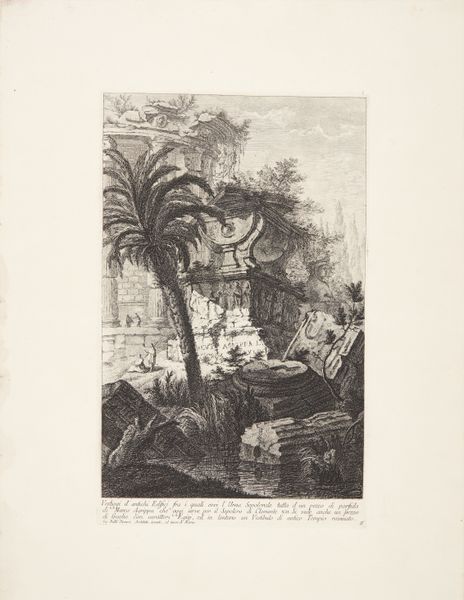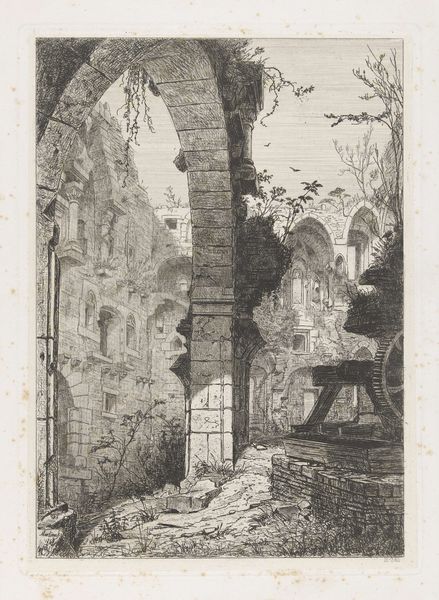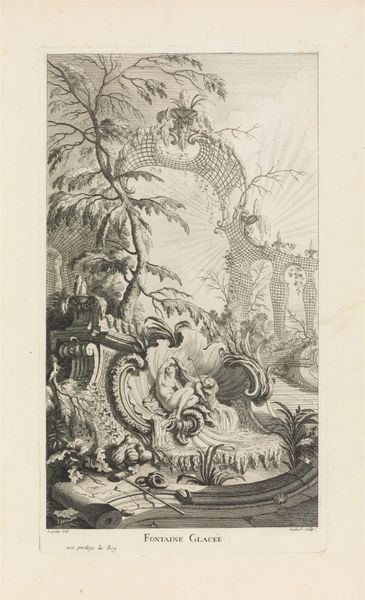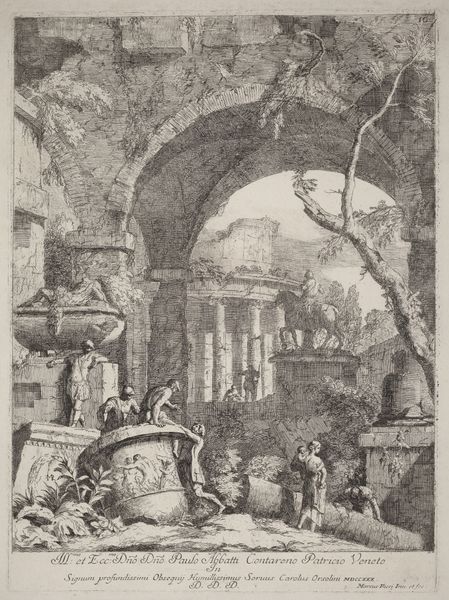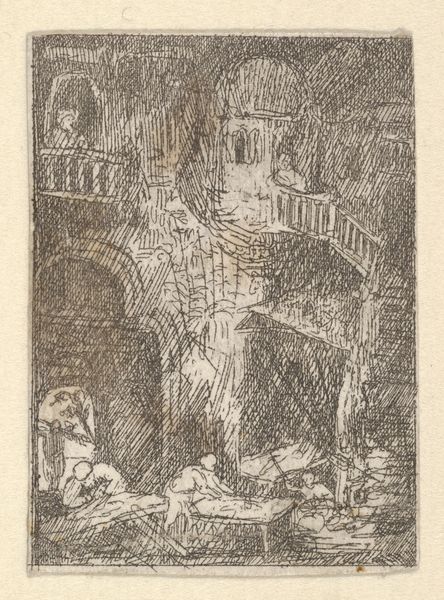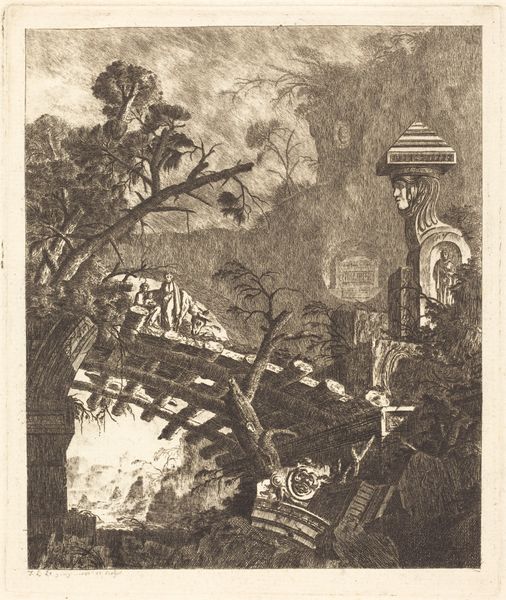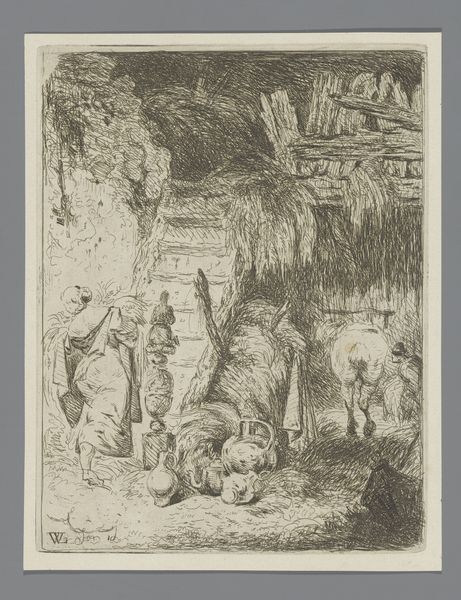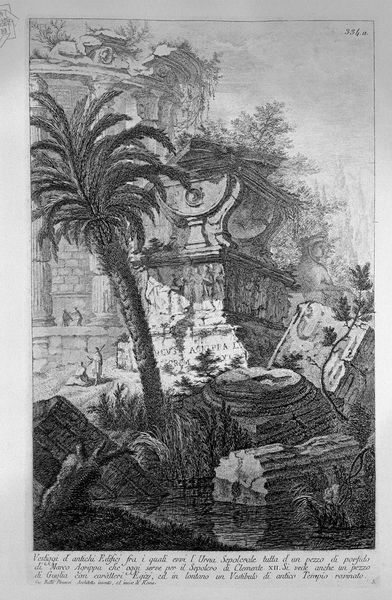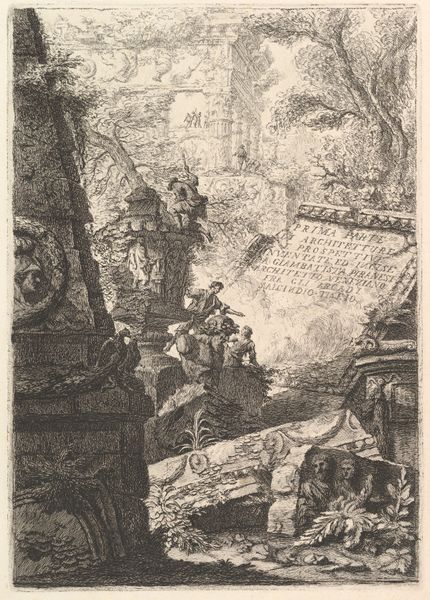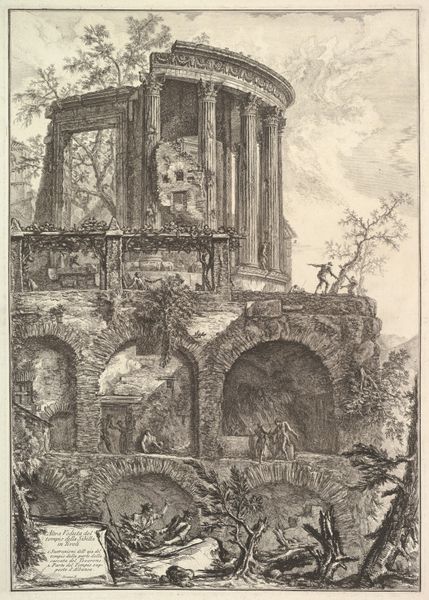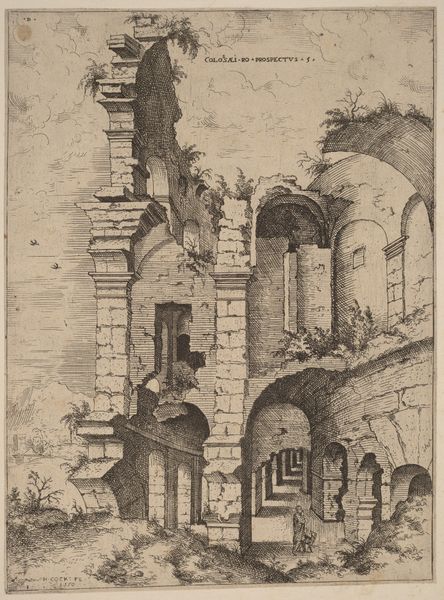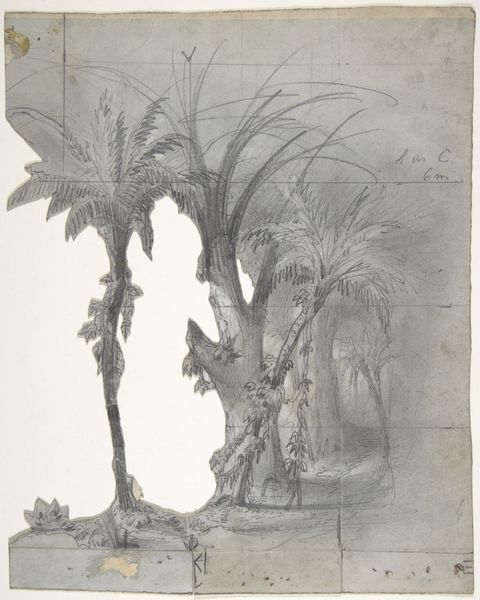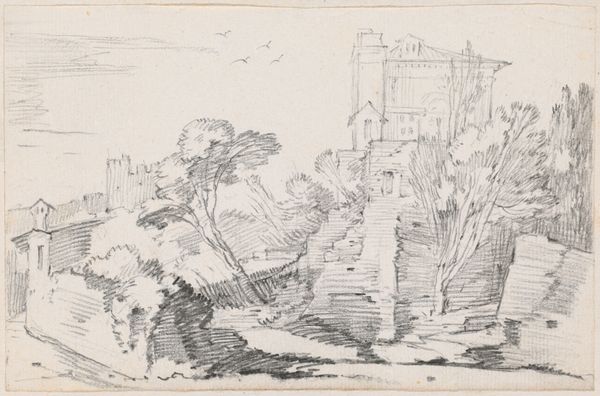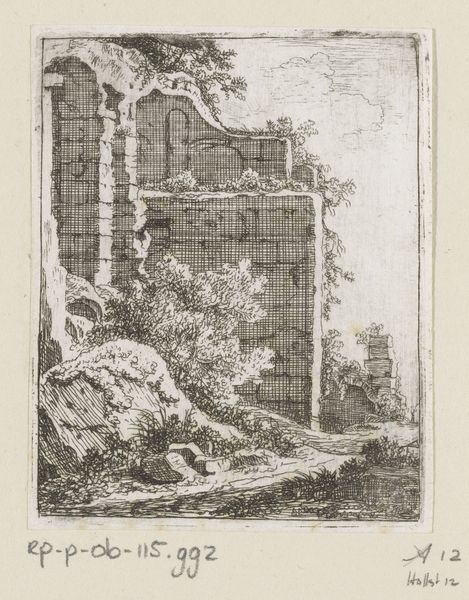
Remains of ancient buldings among which stands the sepulchral urn of Marcus Agrippa made entirely of porphyry, which serves today as the Tomb of Clement XII... (Vestiggi d'antichi Edifici fra i quali evvi l'Urna Sepolcrale tutta d'un pezzo di...), from "Prima Parte di Architettura, e Prospettive" 1745 - 1755
0:00
0:00
drawing, print, etching, architecture
#
drawing
# print
#
etching
#
landscape
#
romanesque
#
cityscape
#
history-painting
#
architecture
Dimensions: Plate: 15 1/4 × 9 5/16 in. (38.7 × 23.6 cm) Sheet: 19 1/2 × 13 1/4 in. (49.5 × 33.6 cm)
Copyright: Public Domain
This engraving by Giovanni Battista Piranesi shows the tomb of Clement XII amidst Roman ruins. Piranesi, working in the 18th century, was part of a cultural movement captivated by classical antiquity, yet his work is far from a simple record. He presents us with a romantic, almost dreamlike vision of Rome, layering history and memory. The tomb itself, repurposed from an ancient urn, speaks to the way power and identity are constructed and reconstructed over time. Who gets remembered, and how, becomes a question. The overgrown foliage and crumbling structures suggest the transience of human endeavor, prompting us to consider the legacies we leave behind. Piranesi is not just showing us a place, he is inviting us to reflect on the passage of time.
Comments
No comments
Be the first to comment and join the conversation on the ultimate creative platform.
